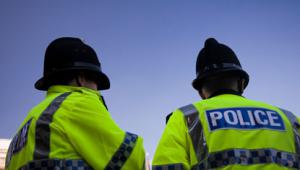Yvette Cooper said she was “surprised” at the level of conviction rates as the police had receiving £8.5m of additional funding to tackle the issue in 2016 for three years. They were also given beefed-up powers under the 2015 Modern Slavery Act.
Cooper, chairing a committee session on Tuesday last week, said she “would have expected the number of prosecutions to have gone up by a lot more than this”.
She quoted Home Office figures showing 185 people were convicted of modern slavery offences last year, compared with 181 the previous year. This number of convictions is actually lower than it was in 2015-16 - the year before the extra funding kicked in - when 192 people were convicted.
Cooper also said the Global Slavery Index report by the charity the Walk Free Foundation suggested there were as many as 136,000 victims of modern slavery in the UK. “[So 185 convictions] just doesn’t sound like very much,” the former shadow home secretary said.
The police were awarded the extra £8.5m as part of the police transformation fund. In the 2015 act, police were given powers such as the ability to stop people trafficking and to seize the assets of traffickers.
Shaun Sawyer, lead on modern slavery for the National Police Chief Council’s, explained to the committee that the police had essentially started from scratch in tackling modern slavery three years ago.
He added that the complex nature of modern slavery investigations – which can take up to two years to complete - means many investigations started with the new funding were still in progress.
The number of modern slavery investigations mounted by the police has increased by more than 500%, from 188 in 2016 to 1,138 last year, he said. The funding has also allowed the police to train more 2,000 officers in this area.
The police chief said that giving the police extra money to tackle modern slavery was not necessarily the answer, calling it a “sticking plaster”, and would fail to deal with the real drivers of modern slavery, which were “economic and societal”.
He said: “We’ll keep dragging the bodies out of the river, but if you want to transform the UK’s approach to modern slavery, look at transparency in supply chains, look at business, look at consumer choices.”
Total UK government spending on anti-modern slavery efforts has almost doubled from £39m in 2017-18 to £61m in 2018-19 – largely driven by an increase in spending on overseas projects.
Modern slavery costs the UK up to £4.3bn every year, according to a Home Office report released last year.










